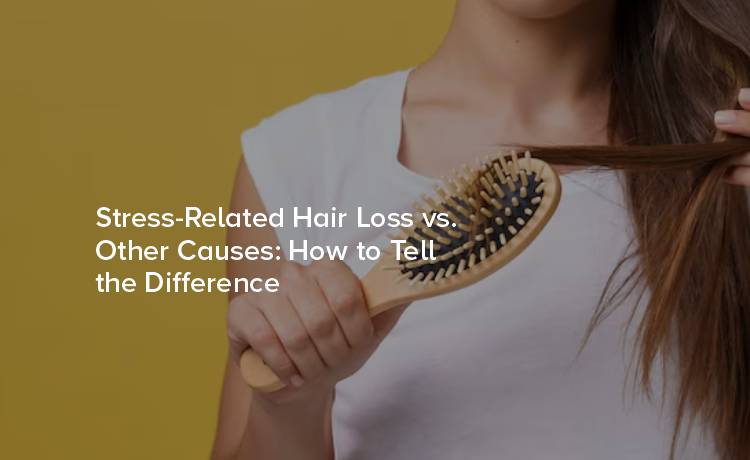
Hair loss is a common concern that affects millions of people worldwide. While it is often considered a natural part of aging, sudden or excessive hair shedding can signal underlying issues. Among the various causes, stress-related hair loss has become increasingly recognized as a significant contributor. Understanding how stress impacts hair, and distinguishing it from other causes, is essential for proper treatment and prevention.
When your body experiences a significant shock—be it from a major surgery, a serious illness, a traumatic event, or a period of intense emotional pressure—it can disrupt the natural growth cycle of your hair. This disruption can lead to a type of hair loss known as telogen effluvium.
Your hair grows in a three-phase cycle:
A major stressful event can prematurely push a large number of growing hairs from the anagen phase directly into the telogen (resting) phase. As a result, several months after the triggering event, you may notice a significant increase in hair shedding. This is the hallmark of stress-related hair loss.
Distinguishing stress-related hair loss from other forms can be challenging, but there are specific indicators to look for. If you're wondering whether stress is the cause of your thinning hair, consider the following signs.
One of the most telling signs of stress-related hair loss is its sudden onset. You might notice an abrupt increase in shedding, with hair coming out in handfuls when you wash or brush it. Unlike genetic hair loss (androgenetic alopecia), which typically progresses slowly with a receding hairline or thinning at the crown, telogen effluvium causes diffuse thinning all over the scalp. Your hair may feel noticeably less dense overall, rather than thinning in a specific pattern.
Think back two to three months before you started noticing increased shedding. Did you experience a major life stressor? Common triggers for telogen effluvium include:
Because there is a delay between the stressful event and the hair shedding, many people don't immediately connect the two. Keeping a timeline of significant life events can help you and your healthcare provider identify a potential trigger.
One of the more reassuring aspects of stress-related hair loss is that it is almost always temporary. Once the underlying stressor is removed or managed, the hair growth cycle typically returns to normal. The excessive shedding will slow down, and new hair will begin to grow back. This recovery process can take several months, but with time, your hair density should be restored. This is a significant contrast to androgenetic alopecia, which is progressive and often permanent without treatment.
When you examine the hairs that have fallen out, you might notice a small, white bulb at the root. This is a "club hair," which indicates that the hair was in the telogen (resting) phase when it shed. Seeing an increased number of these club hairs is a classic sign of telogen effluvium.
To confirm if your hair loss is stress-related, it's helpful to compare its symptoms to other common causes of hair loss.
If you suspect your hair loss is due to stress, the most important step is to manage the underlying cause. While this can be challenging, focusing on your well-being is crucial for recovery.
Most importantly, consulting with a professional is the best course of action. A dermatologist or a hair loss specialist can perform a thorough examination, including a scalp analysis and possibly blood tests, to provide an accurate diagnosis. They can rule out other potential causes and recommend a personalized treatment plan to support healthy hair regrowth.
Losing your hair can be a distressing experience, but you don't have to navigate it alone. Understanding the signs your hair loss is due to stress is the first step toward finding a solution. By recognizing the patterns of telogen effluvium and differentiating them from other conditions, you can take proactive steps toward recovery.
If you are concerned about hair loss, we invite you to schedule a consultation with one of our specialists. We are here to provide you with expert care, a definitive diagnosis, and a compassionate approach to restoring your hair and your confidence.